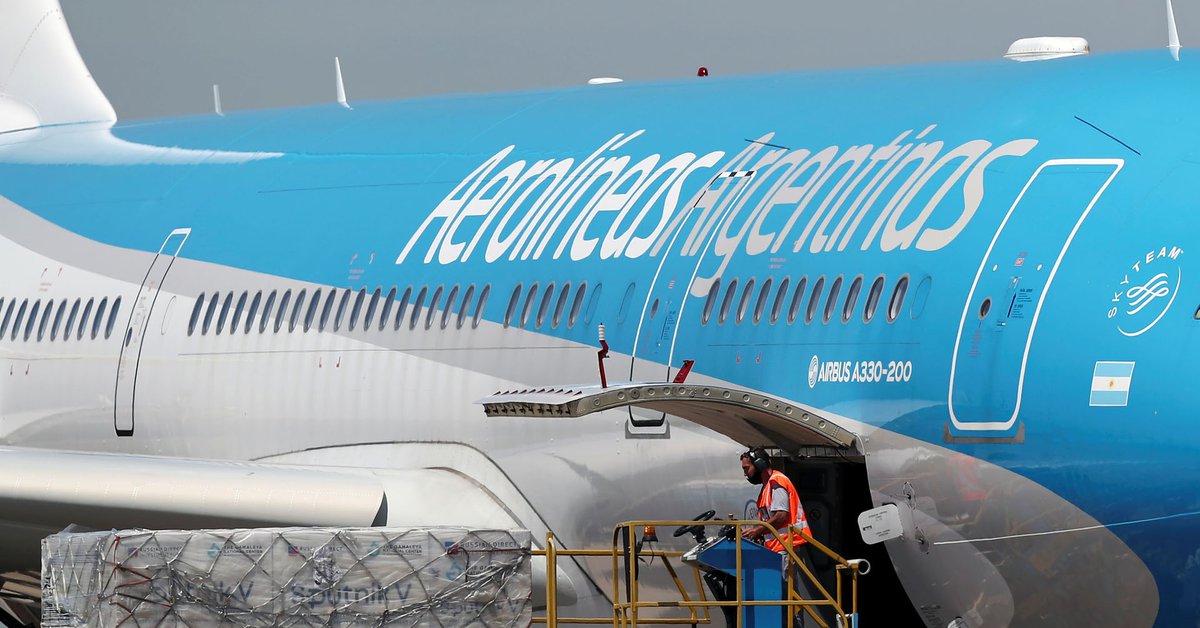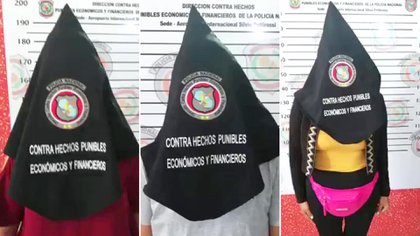RIO DE JANEIRO, BRAZIL – Three Argentines were arrested at Silvio Pettirossi airport, in Asunción, Paraguay, after an airline employee of the flight they had to board detected that the negative tests for coronavirus were false PCRs and informed the local Ministry of Health.
According to the protocol in force in that country, when checking in, it is necessary to verify that the QR code shown in the results of the PCR test coincides with the passenger’s ID card data.

In view of the inconsistencies shown by the system, the woman informed the authorities and all of them were detained. The passengers were identified as Elizabeth Andrea Del Valle, José María Escalera and Graciela Cristi, who confessed that they had bought the results through a contact made through social networks.
“We verified it with the QR system. It was possible to verify that the three results do not belong to the people who identified themselves,” Omar Ovelar, head of the Paraguayan police, told Noticiero Trece.
“This is a recently implemented system so that the people in charge of verifying its veracity can check the authenticity or not of the document,” Ovelar explained.
For her part, Elizabeth Muñez, from the Ministry of Health, explained that when the document was checked with the laboratory that had supposedly issued it, it was determined that “the negative result was real but that it belonged to another person.”
The facts were reported to the Economic Crimes Department of the National Police and the case was referred to the Prosecutor’s Office of San Lorenzo.
“We ask that people do not take risks. We know that we are in a pandemic and that we want to leave the country, but there are rules that we have to comply with to make this exit effective”, said Commissioner Carlos Duré to this Paraguayan TV channel.
As a result of what happened, the Ministry of Public Health informed the public that, through health personnel stationed at various points of entry into the country, in conjunction with the airlines, are conducting thorough checks for the verification of COVID-19 tests, because in some cases tests and altered results were found with laboratories disqualified for this purpose.
These inspections are being carried out upon entering and leaving Paraguayan territory, they warned.

They also urged travelers not to engage in fraudulent conduct, bearing in mind that this type of offense is punishable by imprisonment of up to 3 years or a fine, as established in Article 251 of the Penal Code regarding the production of public documents with false content.
As happened in Paraguay, there are other countries that are also in the spotlight for commercializing counterfeit PCRs. The first case that became known in Argentina came from Mexico, where students who had traveled on a graduation trip to Cancún hired a laboratory that adulterated the results so that they could all return to Argentina despite the fact that many of them had coronavirus.
“You can no longer believe in PCRs coming from outside. This happens in Europe as well. PCRs are being sold to travel,” the Buenos Aires Minister of Health, Daniel Gollán, had warned.
“PCRs are being falsified, which is extremely serious and puts not only the person at risk but also the whole group of people who traveled on the plane because it is no longer one person but 30 or 40 people and the aerosols are much larger”, he remarked after it was confirmed that 32 of the infected young people from Mexico live in the province of Buenos Aires.
On January 22, the National Migration Directorate made the first court presentation after detecting “PCR tests of another person or expired, or medical certificates that had nothing to do with the PCR, or certificates of another type of test or invoice of the procedure and even invoices of cell phone companies, a menu of drinks and even a Guide of Uses of the Public Space of the Government of the City”, as documents attached to the DDJJ requested in a compulsory way to enter the country.
Source: infobae

